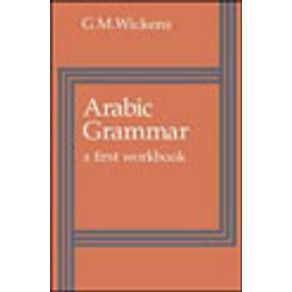Standard Arabic - the language of educated discourse throughout the Arab world - presents difficulties beyond those encountered in most foreign languages. Though today it is increasingly being popularised, it remains essentially an elitist, ‘learned’ language. It has been used without substantial change for over thirteen centuries, in regions as distant as Spain and China, in fields as diverse as poetry and medicine, mathematics and theology. Its morphology and syntax are largely constant, but vocabulary, sense, idiom and style often vary widely. Arabic script requires a good deal of intelligent guesswork: long vowels and diphthongs are easily confused with certain consonants or with each other; short vowels are not normally indicated at all; most consonants are distinguished only by the placing of dots, and can easily be mistaken or misprinted. This is a textbook designed to guide the first-year student through the difficult early stages of learning Arabic. It avoids the dry, ‘scholarly’ approach; it uses modern linguistic concepts sparingly, and takes simple short-cuts where they serve an immediate, practical purpose. Professor Wickens presents the basic facts of the language in a pragmatic order; he introduces the beginner to the recurring problems, shows various ways of recognising and tackling them, and helps accustom him from the outset to deal with the unvocalised (unvowelled) texts which he will nearly always encounter.


